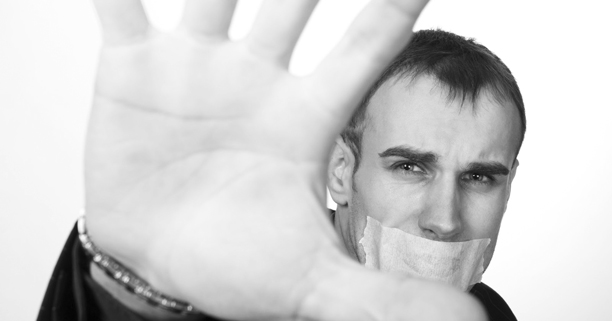Were you born with a silver foot in your mouth? Do you speak before you think? Are you a windbag at heart? That’s never a good thing, click but it’s particularly bad when it comes to finding a job. In Goa, where there is a dearth of employment opportunities, job seekers cannot risk being rejected on grounds of ‘not having watched their words’ during the crucial interview. Potential employers screen eligible candidates and draw their first impressions based on the interview. Psychologist Dr. Charlane Pereira e Rebello has prepared a ‘must-not-say’ list if you want that job to be all yours.
Don’t ever say:
If you’re at the point of being interviewed for a job, you should already know what the company does. Nobody wants to hire someone who doesn’t do their homework.
2. “Can I take this call?”
Ask this deal-breaking question to an interviewer and you will be making a quick exit out the same door you just entered. Taking calls or texting during any interview is inexcusable. It displays lack of respect for your employer and exhibits your lack of commitment to the job. It could be a routine pesky call from your service provider or an international call from your sister or a social call from your aunt in Mumbai. Switch off your cell or turn it to silent mode. If it’s a medical emergency, the caller should dial 108, not you.
3. “How much do you pay?”
Be mum about your pay package. If you ask your interviewer about the salary, you may be passing on a wrong message that all you care about is money. You can raise this delicate issue at a later stage. Of course every job seeker wants to know the compensation. But there won’t be any compensation if you don’t get the job because your potential employer thinks you lack tact.
4. I’ve been out of work for a long time because of personal problems.
This is your future employer (hopefully), not your shrink. So don’t bring up anything negative or stuff that will ring alarm bells and make him think twice about hiring you. Honesty and sincerity are important traits that can and should be conveyed in an interview. But that doesn’t mean you have to spill out your heart. Knowing when to keep your mouth shut is an important part of many jobs, and your interviewer may be looking for that trait.
Swearing in interviews is an absolute no-no. Even if your interviewer has the habit of using profane language, it is best that you be professional at all times. Professionalism is the mark of a solid employee. So unless this is an interview for the position of Director of Gangsta Rap, don’t cuss.
6. “What is your annual leave policy?”
Are you dying to know how many days of casual leave and sick leave you can take in a year? Pose this question during the interview and you may be conveying to any future employer that you are planning your absence rather than seriously working for the organization. Don’t let your curiosity snatch the job offer from your hands. Don’t put the cart before the horse!
7. “You look great in that attire.”
Your interviewer might look awesome in that blue shirt and beige trousers that he is wearing. Or the high heels and tight jeans that she is wearing. Don’t compliment either, as this might come across as a flirtatious comment. Convey an interest in getting into your interviewer’s company, not their pants!
8. “My previous employer was incompetent and didn’t know how to manage his firm.”
Don’t bad-mouth any of your previous employers. Your interviewer has no way of knowing whether there’s something wrong with your former boss, or something wrong with you. And he may be thinking: “If she says this about him, what will she think of me?” Remember, a job interview is no place for negativity.
9. “I hate my current job.”
The list of complaints may be as long as the Mandovi. “The timings are odd. My colleagues are bitchy. My boss is a tyrant.” If you use the interview as an occasion to air your grievances, you are conveying that you cannot adjust to your current work environment and that you may not be able to adapt to this job, either. Rather than griping about your current job, you can talk about the appealing aspects of the future job and how you can contribute to the company.
10. My biggest weakness is that I am a perfectionist
I told you not to use the word ‘bullshit’ in your interview. Don’t dish it out, either. Your potential employer will see right through you. If she asks you to list your weak points, you might want to mention a real one and explain how you overcame it. For instance, you might say: “I was a little green on basic accounting but then I took a course on Tally software and really got up to speed.” It’s preferable that the weakness you mention NOT be one of the core responsibilities of your new position. <




